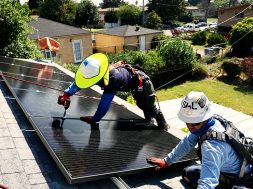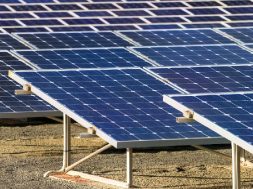
Amplus Energy: cutting out the middleman
Amplus Energy Solutions’ Sanjeev Aggarwal says he opted for rooftop solar power system instead of grid-connected projects so as to connect with the end consumerNot many had heard of Amplus Energy Solutions Pvt. Ltd until the company, backed by US private equity firm I Squared Capital, in November won a bid to install 14.5 megawatts (MW) of solar rooftop systems across 10 states, offering to sell electricity from these plants at tariffs starting as low as Rs3 per unit. Amplus was immediately feted as a catalyst in India’s quest for solar energy. Founder Sanjeev Aggarwal, its managing director and chief executive officer, became the poster boy of India’s solar sector and was invited to overseas events where India made a pitch for foreign investments in its growing green economy. His business model became the subject of a case study by the Indian Institute of Management, Ahmedabad.
Aggarwal said he had opted for a rooftop system—in which electricity-generating solar panels are installed on the rooftop of a building— because of the opportunity to connect with the end-consumer, rather than venture into grid-connected projects. “The idea is to serve directly to the customer and hence the rooftops,” he said in an interview. Founded in 2010, Amplus has hit all the right notes even with a government subsidy accounting for 70% of the Rs3 per unit tariff. The firm today counts India Yamaha Motor Pvt. Ltd, Jubilant FoodWorks Ltd, Walmart India Pvt. Ltd, Hilton Hotels Corp. and Gurgaon-based developer Vatika Group among clients trying to reduce their energy costs by harnessing the sun.
The going has not been easy for Aggarwal, 47, who was earlier director of business development at AES (India) Pvt. Ltd, the local subsidiary of US energy company AES Corp., one of the earliest foreign investors to show interest in the Indian power sector. After leaving AES in March 2010, Aggarwal dabbled in a series of businesses including bidding for hydrocarbon blocks under India’s New Exploration Licensing Policy bid round. Nothing worked out to his liking. “After 2010, no coal linkage or coal mine was given. That made a case for renewable. We got the first solar rooftop contract for 100 kilovolt in November 2013,” said Aggarwal.
The contracts gave him confidence to raise Rs2 crore in 2014 from friends and family. “We realised it is a completely capital-intensive business,” Agrawal said. I Squared Capital invested $150 million in the company in April 2015. Other suitors included global private equity firm Actis Llp, which created renewable energy platform Ostro Energy in 2014. The investment got him the acknowledgement of his peers. “Sanjeev is a sorted guy who has carved a niche for himself by focusing on providing end-to-end energy solutions rather than chasing the grid-connected projects,” said the head of a New Delhi-based solar power generation utility, requesting anonymity.
With I Squared Capital holding around over 90% stake in Amplus Energy, the balance is held by Aggarwal, friends and family. They are in for another pay day, with France’s Total SA interested in coming in as a strategic invester. The firm which had an Ebitda (earnings before interest, tax, depreciation and amortization) run rate of Rs50 crore in 2016, was the first to get in-principle sanction of a loan from State Bank of India from a $625 million facility extended by the World Bank. “We are not a rooftop solar firm but an energy solutions company. We don’t want to deal with electricity distribution companies (discoms) as our business is structured differently. Also, the credit worthiness of discoms is suspect,” said Aggarwal.
State electricity boards had accumulated losses of around Rs3.5 trillion as of 31 March 2015. Amplus is looking to increase its portfolio to 150-200 megawatts (MW) from 60MW by June 2018. Amplus is not averse to making acquisitions to accelerate growth. It acquired US solar power developer SunEdison Inc.’s roof-top solar power assets in India in June last year. It has also evinced interest in acquiring Kiran Energy Solar Power Pvt. Ltd. Experts say distributed generation is the way forward for India’s solar sector. Of India’s plan to add 100 gigawatts of solar power capacity by 2022, 40,000MW is set to come from roof-top projects.
“With India having crossed the 1 GW mark of operational solar distributed generation capacity last year, there is an increased confidence among market players,” said Srishti Ahuja, director at consulting firm EY. “To keep the momentum going, the government will have to strengthen the enforcement of net-metering policy and invest in transmission networks to ensure grid stability. With these steps, India could replicate its success on the utility side and become among the world’s top distributed generation players also,” added Ahuja.













